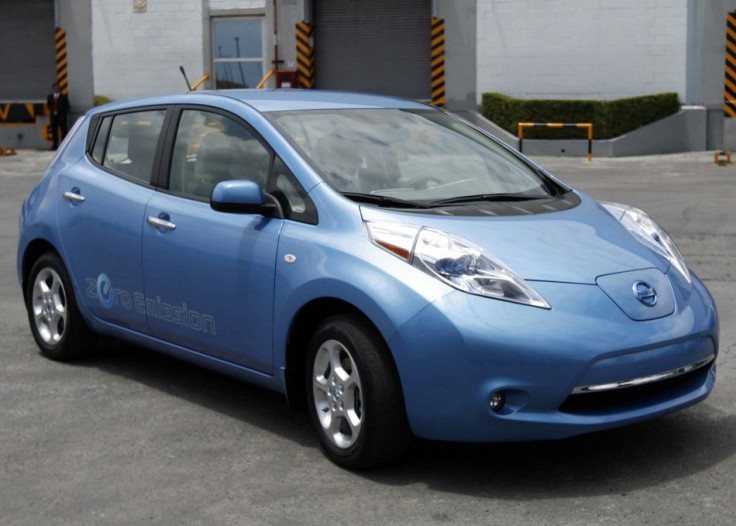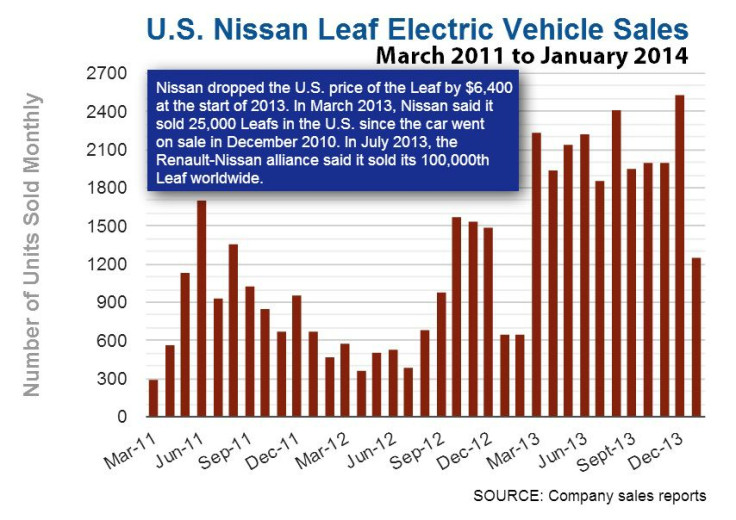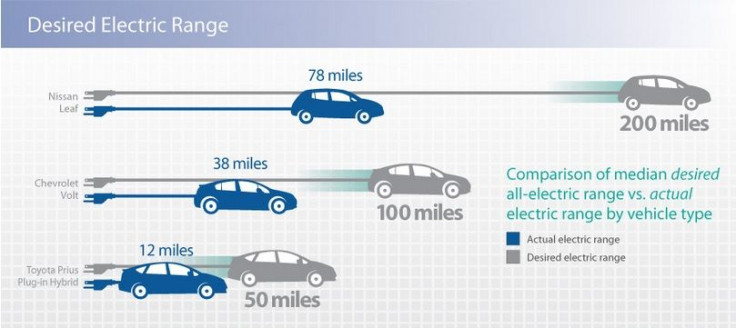What Motivates Someone To Buy A Plug-In Electric Car? Poll Shows Differences Among Nissan Leaf, Toyota Prius, Chevy Volt Owners

What motivates someone to buy one type of electric car instead of another?
A new survey from the San Diego-based Center for Sustainable Energy suggests owners of three of the most popular plug-in electric vehicles in the market have three different main reasons for plunging into the market for cars that are plugged into domestic wall outlets, known as Level 2 chargers, or public charging stations.
Out of the 3,881 California-based respondents, 38 percent of Nissan Leaf owners said environmental concerns was their primary motivation for buying the hatchback that has become the world’s most popular battery electric vehicle. One in five Leaf owners said saving money by using cheaper electricity rather than gasoline was their top motivation while 16 percent said access to high occupancy vehicles was the main reason. Electric cars are exempt from a law that requires more than one passenger in cars traveling on highway HOV lanes.
This contrasts with owners of the Toyota Prius plug-in electric hybrid. Fifty-seven percent of Prius owners said HOV lane access was the primary motivator, followed by saving money (18 percent) and environmental concerns (16 percent). Only 9 percent of Prius owners cited other reasons for buying the car.
At the same time, owners of the Chevrolet Volt plug-in hybrid electric vehicle cited saving money as the primary motivation, at 34 percent, followed by HOV lane access (27 percent) and environmental concerns (18 percent). Twenty-one percent of Volt owners said they had other reasons.
What does this say about green-car owners?
For one thing, it’s important to distinguish between the two types of plug-in electric vehicles in this survey. The Nissan Leaf is a battery-electric vehicle. It doesn’t have a gasoline engine and relies solely on electric power with a range of 78 miles. Leaf owners are sacrificing internal-combustion engines and completely embracing a dependence on the electrical power grid, so it's not surprising that environmental concerns would be strongest among BEV owners.

Also, Leaf owners were more likely to cite “other” as a top motivation compared to Volt and Prius owners. The Leaf is the cheapest of the three models. The 2014 model year Leaf base price is $28,980, making it the least expensive electric passenger car in the market, priced well below the Volt, which starts at $34,185, and the plug-in Prius, which starts at $29,990. All three of the vehicles qualify for federal tax incentives and California state clean-vehicle rebates. The adjusted base price of the Leaf, which doesn’t have an internal-combustion engine and therefore gets the biggest discount of the three models, can fall under $19,000.
The Prius and the Volt are plug-in hybrid electric vehicles. This means PHEVs owners are a little more skeptical of their ability to rely completely on access to public and home charging. (If you think it’s a pain when your smartphone runs out of power, imagine what it feels like in a much larger mobile device.) The fact these cars are still assisted by gasoline would suggests owners of these cars are a little less motivated by environmental concerns than battery-electric vehicle owners.
Why are Prius owners more likely to cite HOV access as the main motivator than Volt owners, who point to saving money on gas as the top reason? It’s difficult to say for certain. HOV lane access concerns suggest Prius owners might be more likely to have longer highway commutes, in which case fuel economy and HOV access would be significant factors.
The Prius PHEV has an all-electric range (that’s how far a PHEV can drive on battery power alone) of only 12 miles -- barely enough to get to a grocery store and back if you live in the suburbs. The Volt’s range is also pretty low, but at 38 miles it would be a little more feasible to rely on electric power alone for many types of errands a typical car owner makes. So Volt owners, who are citing money savings on fuel as the primary reason, may be gravitating to the Chevrolet brand because it currently leads the industry on PHEV electric-only range.
Speaking of, the survey also asked these owners what their desired electric range would be for these cars. Not surprisingly, all of them wanted more range:

Check out the full survey results from the Center for Sustainable Energy here.
© Copyright IBTimes 2024. All rights reserved.












